#Heritage Bible Church
Text
The current pastor at the once-tight-with-BJU-in-its-church-constitution Heritage Bible Church in Greer, Trent Hunter, wrote this article for John Piper's Desiring God.
It's . . . a problem.
A big problem. He misdefines intersectionality (like critical race theory) as a big pagan boogie man.
It's not.
He claims that as a hetero cis white man he can explain to his adopted BIPOC children that a multiplicities of identities shouldn't be a problem.
It is false compassion when others tell my kids — over and over — that their neighbors are secretly afraid of them, that police officers are at war with them, and that their teachers don’t believe in them. Cruel is a better term for it.
It’s cruel to tell children that their future will be determined by the moral improvement of intractably racist people.
It’s cruel to tell my children that they can make it in life as long as others hold them to lower standards.
It’s cruel to tell my children that potential employers won’t hire them because of their skin color. It is equally cruel — and equally racist, it seems to me — for businesses to treat my children as particularly valuable hires because of the color of their skin.
Dude.
You're talking about The Talk. The Talk even has its own wiki page.
I am a white lady. I admit that I don't get it. But I know that The Talk is an essential part of survival for BIPOC kids.
The Brer Rabbit stories are essentially The Talk coded for Black kids trapped in slavery.
Is it cruel to tell BIPOC kids that the American system is bent toward their oppression or is it cruel that the American system is bent toward their oppression?
I think you have it mixed up. I think you need to sit down and listen for awhile.
#Bob Jones University#Intersectionality#Trent Hunter#Heritage Bible Church#Klandamentalism#Adoption#Desiring God
2 notes
·
View notes
Text

Let's go inside -
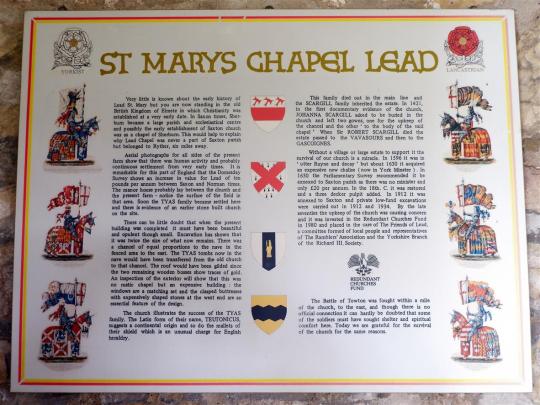

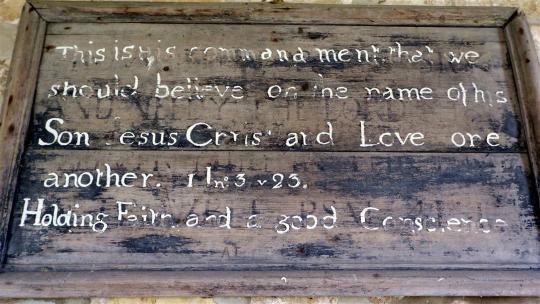



St. Mary's Chapel, Lead, North Yorkshire, England.
#Door#Entrance#Church#Prayer#Religion#Christian#Christianity#Parable#Bible#God#Academia#History#Heritage#Vintage#Warmcore#Softcore#Grandmacore#Places#Aesthetic#Photography
18 notes
·
View notes
Text
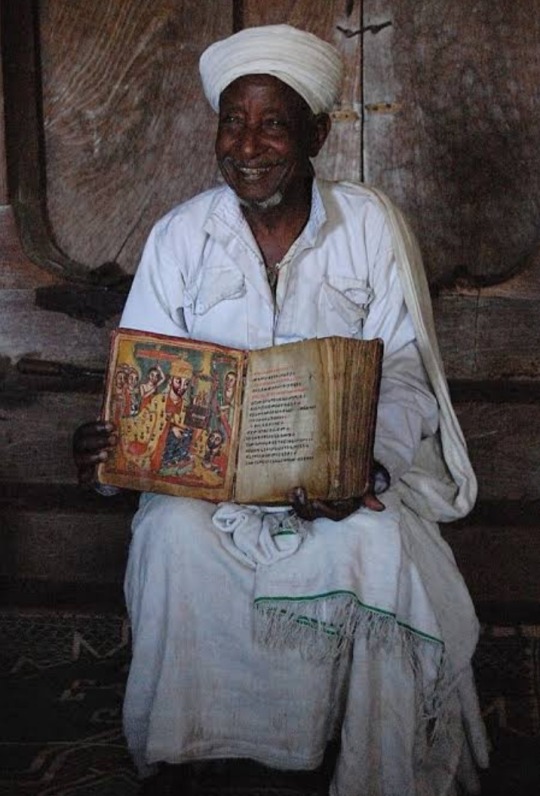
Ethiopian Bible — considered as the oldest and most complete 'Bible' on earth.
The world’s earliest illustrated Christian book has been saved by a British charity, which located it at a remote Ethiopian monastery.
The incredible Garima Gospels are named after a monk who arrived in the African country in 5th century AD.
Abba Garima arrived from Constantinople in 494 AD. Legend has it that he was able to copy the Gospels in a day because God delayed the sun from setting and is said to have copied them out in just one day.
It is beautifully illustrated and the colours are still vivid. It has been conserved through the Ethiopian Heritage Fund.
The incredible relic has been kept ever since in Garima Monastery near Adwa in the north of the country, which is in Tigray region at 7000ft.
Experts believe it is also the earliest example of book binding still attached to the original pages.
The survival of the Gospels is incredible considering the country has been under Muslim invasion, Italian invasion, and a fire in the 1930s destroyed the monastery’s church.
They were written on goat skin in the early Ethiopian language of Ge’ez.
There are two volumes dated from the same time, but the second is written in a different hand from the first. Both contain illustrations and the four Gospels.
Though the texts had been mentioned by the occasional traveller since 1950s, it had been thought they dated from 11th century at the earliest.
Carbon dating, however, gives a date between 330-650 AD, which tantalisingly overlaps the date Abba Garima arrived in the country.
So, the first volume could be in his hand – even if he didn’t complete the task in a day as the oral tradition states.
The charity Ethiopian Heritage Fund that was set up to help preserve the treasures in the country has made the stunning discovery.
It also allowed incredible rare access to the texts, so experts could conserve them on site. It is now hoped the Gospels will be put in a museum at the monastery where visitors will be able to view them.
Blair Priday from the Ethiopian Heritage Fund said:
"Ethiopia has been overlooked as a source of these fantastic things. Many of these old Christian relics can only be reached by hiking and climbing to remote monasteries as roads are limited in these mountainous regions.
All the work on the texts was done in situ and everything is reversible, so if in future they can be taken away for further conservation, we won’t have hindered that.
The pages had been crudely stitched together in a restoration in the 1960s and some of the pages wouldn’t even turn. And they were falling to pieces.
The Garima Gospels have been kept high and dry, which helped preserve them all these years. They are kept in the dark so the colours look fresh.
This was the most astounding of all our projects. The Patriarch, the head of the Ethiopian Church, had to give his permission.
Most of the experts did the work for nothing. We are currently undertaking other restoration programmes on wall paintings and religious texts.
We believe that preserving Ethiopia’s cultural heritage will help to increase visitor revenue and understanding of the extraordinary history of this country."
📷 : Credit to the Owner
#Ethiopian Bible#bible#Garima Gospels#Ethiopia#Abba Garima#Ethiopian Heritage Fund#Garima Monastery#The Patriarch#Ethiopian Church
13 notes
·
View notes
Text

To the Church in Ephesus
1 To the messenger of the church in Ephesus write:
The one who holds the seven stars in his right hand, who walks among the seven gold lampstands, says this:
2 I know your works, your labor, and your patient endurance, and that you are not able to tolerate evil people. You have tested those who say they are apostles, but are not, and have found them to be liars. 3 Indeed, you do have patient endurance. You have endured hardships on account of my name and have not become weary.
4 But I have this against you: You have forsaken your first love. 5 Remember, therefore, the state from which you have fallen! Repent and do the works you did at first. Otherwise I will come to you and remove your lampstand from its place, if you do not repent.
6 But you do have this: You hate the actions of the Nicolaitans, which I also hate.
7 Whoever has an ear, let him hear what the Spirit says to the churches. To the one who is victorious I will give the privilege to eat from the tree of life, which is in the paradise of God.
Letter to the Church in Smyrna
8 To the messenger of the church in Smyrna write:
The First and the Last, who was dead and came to life again, says this:
9 I know your suffering and your poverty—but you are rich. And I know the blasphemy that comes from those who say they are Jews but are not; rather, they are a synagogue of Satan. 10 Do not fear anything that you are about to suffer. Look, the Devil is about to throw some of you into prison so that you will be tested, and you will suffer for ten days. Be faithful until death, and I will give you the crown of life.
11 Whoever has an ear, let him hear what the Spirit says to the churches. He who is victorious will not be hurt at all by the second death.
Letter to the Church in Pergamum
12 To the messenger of the church in Pergamum write:
The one who has the sharp, two-edged sword says this:
13 I know where you live—where the throne of Satan is. And I know that you hold fast to my name. You did not renounce your faith in me even in the days when Antipas, my faithful witness, was put to death near you, the place where Satan lives.
14 But I have a few things against you: You have some people there who hold to the teaching of Balaam, who instructed Balak to put a stumbling block in front of the children of Israel so that they would eat things offered to idols and commit sexual immorality. 15 Likewise, you also have some people who hold to the teaching of the Nicolaitans. 16 Therefore, repent! If not, I will come to you soon, and I will fight against them with the sword of my mouth.
17 Whoever has an ear, let him hear what the Spirit says to the churches. To the one who is victorious I will give some of the hidden manna. I will also give him a white stone with a new name written on it, which no one will know except the one who receives it.
Letter to the Church in Thyatira
18 To the messenger of the church in Thyatira write:
The Son of God, whose eyes are like fiery flames and whose feet are like polished bronze, says this:
19 I know your works and love and faith and service, as well as your patient endurance, and that you are doing more now than you did at first.
20 But I have this against you: You allow that woman Jezebel, the one who calls herself a prophetess, to deceive my servants and to teach them to commit sexual immorality and eat things offered to idols. 21 I gave her time to repent, but she is not willing to repent of her sexual immorality. 22 Look, I am going to throw her onto a bed and throw those who commit adultery with her into great suffering, if they do not repent of her works. 23 And I will put her children to death. And all the churches will know that I am the one who searches hearts and minds, and that I will give to each of you according to your works.
24 To the rest of you in Thyatira, who do not hold to this teaching, who do not know Satan’s “deep things,” as they call them, I say that I will not lay any other burden on you. 25 Only hold fast to what you have until I come.
26 To the one who is victorious and continues to do my works until the end, I will give him authority over the nations, 27 and he will rule them with an iron staff and shatter them like clay pots, 28 just as I myself have received authority from my Father. I will also give him the morning star.
29 Whoever has an ear, let him hear what the Spirit says to the churches.
— Revelation 2 | Evangelical Heritage Version (EHV)
The Holy Bible, Evangelical Heritage Version®, EHV®, © 2019 Wartburg Project, Inc. All rights reserved.
Cross References: Genesis 2:9; Exodus 16:33; Numbers 25:1; 1 Kings 16:31; 1 Kings 21:25; Psalm 2:8-9; Psalm 7:9; Psalm 26:2; Psalm 31:23; Isaiah 14:12; Isaiah 30:14; Isaiah 44:6; Isaiah 49:2; Isaiah 56:5; Jeremiah 2:2; Daniel 10:6; Matthew 4:3; Matthew 4:10; Matthew 5:14-15; Matthew 7:28; Matthew 11:15; Luke 1:23; Luke 5:5; John 6:6; John 21:22-23; Acts 9:31; Acts 15:28; Acts 18:19; Acts 22:20; Romans 2:4-5; 2 Peter 3:9; Revelation 1:11; Revelation 17:2; Revelation 18:9; Revelation 3:11
#the church in Ephesus#the Church in Pergamum#the Church in Thyatira#the Church in Smyrna#love grown cold#evident#fellowship#Revelation 2#Book of Revelation#New Testament#EHV#Evangelical Heritage Version Bible#Wartburg Project Inc.
10 notes
·
View notes
Text
youtube
Faith & The Word of God
#life together#life together ministry#YouTube#Faith#the word of god#the will of god#rejoice#sermon#church#heritage fellowship#audio#joy#scripture#bible#thankfulness#Christian#christian faith#Christianity
0 notes
Photo
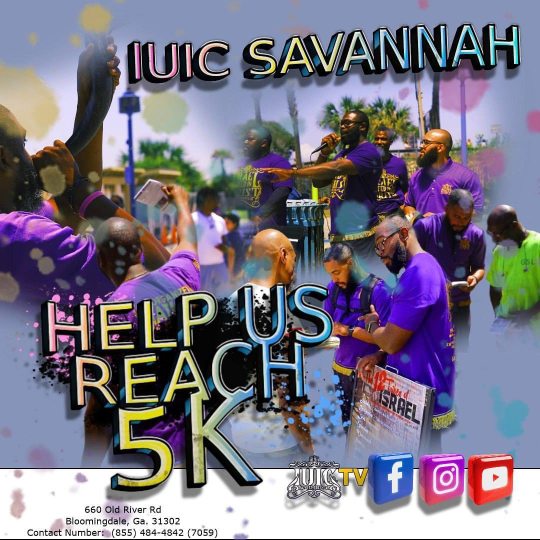
Support IUIC SAVANNAH GEORGIA social media as we strive to bring the people of the Lord back from their low estate. Casting out all the lies and hypocrisy of this world. .…………………………………… Visit our website here 💻👨🏾💻🖥 🔴 https://solo.to/unitedinchrist 👇🏾SUBSCRIBE AND FOLLOW US ON OUR CHANNELS 👇🏾 YOUTUBE https://youtube.com/channel/UCLHDdhsEQx5UmWGIOgOGrYw FACEBOOK https://www.facebook.com/israel.rise.75 INSTAGRAM https://instagram.com/iuicsavannah?igshid=YmMyMTA2M2Y= TIKTOK https://www.tiktok.com/@iuic.savannah.ga #Savannah #Bible #History #Georgia #Religion #Church #Heritage #Israelites https://www.instagram.com/p/CfVczfmOYEw222tV_mokm8DpozlX_sWiyyJ7Bk0/?igshid=NGJjMDIxMWI=
0 notes
Note
Hello, I really don’t want to be rude or anything like that but I would love to know any more information about the Christians in Palestine, Lebanon and Syria like, is it true Gaza had family lineages dating back to Jesus Christ? Asking because Ziocucks love making it seem as if Christians don’t exist over there
omg not rude at all, actually this is my favorite thing to talk about (it was a major focus of this blog prior to Al-Aqsa Flood)
it's a huge topic so I'll link a ton of resources, but to answer your main question: yes, many Palestinian Christians in Gaza and elsewhere can trace their family history with Christianity back to the 1st century. the Christian community in Gaza is said to have been founded by the apostle Philip. the first bishop of Gaza was the apostle Philemon, the recipient of a Pauline epistle.
a core zionist myth is the idea that contemporary Palestinians only arrived in Palestine in the 7th century or even the 20th century (see the links for debunking). but there's plenty of documentation of continuous Christian (and Jewish) presence in Palestine before, during, and after the emergence of Islam. Palestinians (and Levantine ppl more generally, but esp Palestinians because of the totality of their colonial dispossession—stories are often literally the only heirlooms refugee families have) typically have very strong family oral histories going back many centuries, so if a Palestinian tells you their family has been Christian since the time of Christ, take their word for it. community continuity is also about more than family trees—even if someone's family came to Christianity later, they're still part of the continuous living heritage of their community.
the continuity of Palestinian Christianity is also evidenced by Palestinian holy sites. because Christianity was illegal in the Roman Empire until Constantine took power, dedicated churches weren't built until the 4th century, but many of these churches were built around existing sites of covert worship—for example the Church of the Nativity in Bethlehem was built around a grotto that was already venerated as the site of Jesus' birth, the Church of St. John the Baptist in 'Ayn Karim (a forcibly depopulated suburb of Jerusalem) was built over a 1st century rock-cut shrine marking the site of John the Baptist's birth, and the Church of the Multiplication in Al-Tabigha (a destroyed and forcibly depopulated village on the shore of Lake Tiberias) was built over a limestone slab believed to be the table were Jesus fed the multitude. throughout the Levant there are also many ancient shrines (maqamat) that are shared sites of prayer for both Christians and Muslims; in Palestine many of these sites have been seized by the occupation and Palestinians are prevented from visiting them.
Palestinian Christian communities who are able to travel to the villages they were expelled from in the Nakba will sometimes return there to celebrate weddings and holidays in their ancestral churches, e.g. in Iqrit and Ma'alul (x, x). of course because the occupation heavily restricts Palestinian movement this isn't possible for most refugees.
here's some resources to get you started but feel free to hmu again if you have any more specific questions!
Zionism and Palestinian Christians
Rafiq Khoury, "The Effects of Christian Zionism on Palestinian Christians," in Challenging Christian Zionism (2005)
Mitri Raheb, I am a Palestinian Christian (1995)
Mitri Raheb, Faith in the Face of Empire: The Bible Through Palestinian Eyes (2014)
Christ at the Checkpoint: Theology in the Service of Justice and Peace (2012)
Faith and the Intifada: Palestinian Christian Voices (1992)
The Forgotten Faithful: A Window into the Life and Witness of Christians in the Holy Land (2007)
Faith Under Occupation: The Plight of Indigenous Christians in the Holy Land (2012)
Palestinian Christians: The Forcible Displacement and Dispossession Continues (2023)
Donald E. Wagner, Dying in the Land of Promise: Palestine and Palestinian Christianity from Pentecost to 2000 (2003)—can't find it online but worth checking your library for
Pre-Zionist History
James Grehan, Twilight of the Saints: Everyday Religion in Ottoman Syria and Palestine (2016)
Ussama Makdisi, Artillery of Heaven: American Missionaries and the Failed Conversion of the Middle East (2008)
Kenneth Cragg, The Arab Christian: A History in the Middle East (1992)
Christopher MacEvitt, The Crusades and the Christian World of the East: Rough Tolerance (2007)
John Binns, Ascetics and Ambassadors of Christ: The Monasteries of Palestine 314-631 (1996)
Derwas Chitty, The Desert a City: an Introduction to the Study of Egyptian and Palestinian Monasticism Under the Christian Empire (1966)
Aziz Suryal Atiya, A History of Eastern Christianity (1968)
Michael Philip Penn, When Christians First Met Muslims: A Sourcebook of the Earliest Syriac Writings on Islam (2015)
Early Christian Texts
The Acts of the Apostles (1st century, Palestine. yes I'm recommending the bible lol but I promise I'm not trying to evangelize, it just really paints a good picture of the birth of Christianity in Jerusalem and its early spread)
The Didache (1st or 2nd century, Palestine or Syria—the earliest known catechism, outlining how Christians were supposed to live and worship)
Cyril of Scythopolis, The Lives of the Monks of Palestine (6th century)
Sayings of the Desert Fathers and Desert Mothers (early Christian monastics)
for more resources specific to my tradition, the Maronite Church, see this post. for other misc Syriac tidbits see my Syriac tag. this is just scratching the surface so again, if you (or anyone else who sees this post!) have more specific interests lmk and I can point you in the right direction
134 notes
·
View notes
Text
Nikaposting Pt 1: Crypto-Religion
This is the first of a series of posts about Nika & associated religious practice in the One Piece world. As I write and post the rest of the series, I’ll add links to this header.
Pt 2: Symbology & Syncretism | Pt 3: Joyboy was Shandian | Pt 4: Sun God Tropes
Enormous credit to @oriigami for being my discussion partner through all of this and having a substantial influence on the final product. Check out our ao3 series Joyful for a narrative rather than analytical take on the Nika tradition, and definitely go read her OP blog @kaizokuou-ni-naru for meta and translation fun facts.
-
The Nika Cult is a Crypto-Religion
Terminology note: I will be using cult in these posts in the sense of “cult of worship,” rather than in the modern pejorative sense. Additionally, I tend to use “tradition” rather than “religion” as a general term, because “religion” is a messy and difficult to define concept, while “tradition” is much more inclusive of traditional practices, folk beliefs, and cults of worship that may not be considered religions by Western scholarship.
Raise your hand if you saw Kuma’s church and Bible, concluded “oh, the Nika stuff is basically One Piece Christianity,” and moved on with your life.
It’s an easy assumption to make, and for all I know authorial intent may well stop there. I’m not Oda. I’ll never be able to guess what goes on behind those fish eyes of his. But a second look at the worldbuilding around both Nika and Christianity in One Piece brought me to a very different conclusion: that the Nika cult is a crypto-religion and is, in Kuma’s case, using the outward appearance of Christianity as camouflage.
First of all: We have ample evidence that Christianity (or some variation of it- I’m fascinated by the implied existence of such things as One Piece Jerusalem and the One Piece Council of Nicea) does exist in the One Piece world, and is both fairly widespread and quite legal. Flevance was pretty explicitly Catholic (Law went to church as a kid), Miss Monday and Mother Carmel masqueraded as nuns to imply harmlessness, many if not most of the graves shown in the series are crosses, whatever Usopp was on about with that exorcism equipment, and, yes, Kuma’s church and Bible.
Even mentioning the Nika cult, on the other hand, is grounds for the government to assassinate you with extreme prejudice.
A crypto-religion is what happens when a religion is suppressed to the point that its practice is grounds for exile, torture, and/or execution: Some people will convert. Some people will flee into exile. Some people will die. And some people will outwardly adopt the dominant religion, but will continue to practice their own traditions in secret; ie, they’ll create a crypto-religion.
One of the more famous examples of this is the post-Spanish Inquisition crypto-Jews of Spain and Portugal, who converted to Christianity in public but kept what Jewish traditions and rituals they could in private. To this day, descendants of these conversos whose families have been Catholic for centuries are discovering that their family tradition of lighting two candles on Friday or not eating pork on Saturday are in fact the legacy of a violently suppressed heritage. There are countless other examples of crypto-religions throughout history, both among Jews (my own personal field of knowledge) and among other traditions (for an example that would be known to Oda, the crypto-Christians of Japan).
There’s no way the Nika cult could have survived except in cryptic form. If it ever had physical infrastructure in the form of temples or pilgrimage sites, the government would have sought them out and demolished them long ago if they were not adequately disguised, especially in World Government member states like the Sorbet Kingdom. Likewise, anyone foolish enough to speak publicly about Nika will be summarily assassinated.
In fact, I have doubts that the Nika cult ever existed outside cryptic form, at least in a significant or long-lasting manner. It was specifically introduced as a slave tradition, likely nigh-exclusively oral, practiced in secret either from its inception—if Nika was a figure created by slaves, including the buccaneers—or for a very long time—if it was the cultural or ethnic tradition of the buccaneers, which spread from enslaved buccaneers to non-buccaneer slaves because Nika was a figure that resonated with them. I tend the favor the second option, but either has merit.
As @oriigami said when we were talking about this, Kuma has a church. Kuma has a bible. Kuma worships a god about whom absolutely nothing is written except in the oldest texts.
Additionally, I’ll expand on this more in pt 2 of this series, but the pendant Kuma leaves for Bonney, a large circular sapphire surrounded by eight smaller circular sapphires, matches the circular symbol inset into the crosses of his church. Bonney immediately identifies the pendant as a sun even though it really doesn’t look like one, and it can be surmised therefore that it’s a Nika amulet, and the sun with disconnected rays a Nika symbol. Following this read, and especially because this symbol occurs across the world in other contexts (see pt 2 for my thoughts on that), its presence in the church is a very careful bit of architectural sleight of hand on the part of whichever of Kuma’s ancestors built the place- echoing a very common practice of real-world crypto-religion adherents to mark the true nature of their allegiances and houses of worship in ways only those in the know might recognize.
And on a storytelling level, Kuma’s entire presence in the narrative and in the world has been a tragic saga of appearing to be one way until he’s revealed, again and again, to be the opposite. It makes thematic sense for him to be fooling the world about his faith as well!
#nikaposting#sun god nika#gear 5#opmeta#bartholomew kuma#meta tag#zephflix original#if i hadn't dropped out of college i'd be a religious studies major and this tag is how you know
98 notes
·
View notes
Text
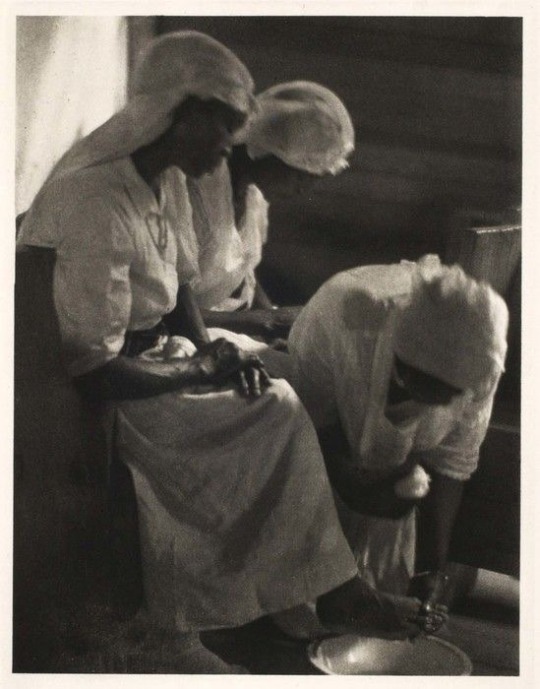
"Holiness Hoodoo: Rediscovering Ancestral Roots Without Jesus"
The term "Holiness Hoodoo" may leave some people puzzled, so allow me to clarify its meaning. In my view, Holiness Hoodoo represents a return to the traditional practices of my ancestral lineage, a way to decipher who I am and what my purpose entails. Many of our forebears were devout Christians, and this undeniable fact forms the backdrop of my spiritual journey. Despite the complex relationship that many Black Americans have with the Bible due to the scars of slavery, it's essential to remember that it wasn't the Bible itself that caused harm, but the people wielding it as a tool of oppression.
As I delved deeper into the realms of ancestral magic, I began to notice striking parallels with church practices. To some, I seemed too "churchy" for hoodoo, and to others, too "hoodoo" for the church—there appeared to be no middle ground. However, I've come to understand that my connection to my ancestors is the cornerstone of my spiritual practice. I've realized that perhaps the reason some individuals struggle to communicate with their spirits is that they try to venerate them through African traditions, tarot, or other methods their ancestors might not recognize.

The Bible, as a potent tool in hoodoo, is not revered because we live by its teachings but because it contains powerful scriptures. My mother, for instance, believed in Jesus, yet she was a practitioner of hoodoo—a tongue-speaking, spirit-conjuring woman. Her approach, which I now embrace, is what I refer to as "Holiness Hoodoo."

So, what does Holiness Hoodoo look like for me?
1. Setting the Atmosphere:
I play inspirational or gospel music that resonates with my specific needs, allowing it to fill my home as I clean, pray, or perform spiritual work. Gospel music serves as a direct conduit to my ancestral spirits, and sometimes, when I hear a song I haven't listened to in a while, an ancestor's presence is assured.
2. Keeping a Bible on the Altar:
While I don't read the Bible frequently, I keep it open to the Psalms as an offering to my spirits. The Bible also serves as a powerful tool of protection, and specific verses and pages can function as talismans and petitions.
3. Baptisms:
Baptism, in my lineage, is a ritual practice to wash ourselves of sins and start anew. It's not just for babies; it can also cleanse generational curses and traumas passed down from parents.
4. Shouting:
Listening to gospel music, I engage in the practice of shouting, a form of ecstatic dance that connects me with my spirits. This practice fills me with light and often results in downloads of ancestral wisdom.
5. Laying of Hands:
I perform the laying of hands, a practice I'll discuss in more detail in the future. It's distinct from Reiki and is a significant part of my spiritual tradition.
6. Fasting:
Fasting is a part of my spiritual practice, serving as a means of both elevating my spiritual consciousness and cleansing my body. I firmly believe that one's health plays a pivotal role in their spiritual journey.
Holiness Hoodoo is about preserving the traditions of our ancestors and finding connections with them. It doesn't rely on dogma or strict religious doctrine; instead, it is a pathway to tap into the wisdom and spirituality that has been passed down through generations. In this practice, there is no room for being "too churchy" or "too hoodoo"—it's about embracing the rich tapestry of our heritage and harnessing it for a profound and authentic spiritual experience.
Please make sure you SHARE! SHARE! SHARE! For more if you enjoyed this post.
Don’t forget My MInd and Me inc is still seeking donors for The Peoples Praise House! Even if you cannot donate, SHARE ! Thank you !
@conjuhwoeman on twitter
@realconjuhwoeman on IG
#hoodoo#medium#ancestor veneration#witch#rootwork#black women#conjure#prophet#tutnese#luxury#traditional hoodoo#holiness
98 notes
·
View notes
Text
The Chosen & Christianity - my thoughts
I have never identified as ‘Christian’ although I was raised Catholic, purely because I have no care for its following all the outdated cultural practices and quite frankly, because of what people have made ‘Christianity’ out to be. However, I have and always will find the intrinsic values of Christianity really dear to me. If you take away everything else, at its core (like all other religions that are clouded in cultural and historical biases), it’s all about love and compassion and kindness and it really warms my heart.
So yes, has The Chosen - a TV show about real humans, sinners and outcasts, still being adored by Christ - made me love Christianity again? Absolutely. Has it healed my image of religion as paternalistic - by portraying Jesus for all he really is - good and kind and loving - without having all the extra added bits that make religion daunting and unwelcoming? Yes. Does it make me feel loved and safe and accepted as a queer person? Yes. I find myself closer to Christ more than ever.
Now some of you may not agree with queer people because of what the bible says, but I would say, for every time the bible has ‘condemned’ homosexuality (this in itself is a debate, but besides), ten times over has it has emphasised the importance of loving people and being kind to people and not judging them for their sins, for you yourself are not sinless. Surely, that makes these values 10x more important than condemning queer folks and kicking them out of churches???
If you identify as ‘Christian’ but judge and make outcasts of people, how are you a follower of Christ - he who went out and made friends with outcasts? What is TRULY more important in this religion? Compassion, which fundamentally underpins Christianity (and humanity!!!), or abiding by tradition, sacrificing kindness in efforts to adhere to strict rules.
It’s people make religion scary, not the teachings themselves. People make it out to be something that judges and condemns, rather than grows and nurtures - people make people distance from the Church, and that is so upsetting to me, because Jesus Himself was such a welcoming man.
For that reason, I don’t think I’ll ever identify as Christian because of how rejected I feel in the church, especially for being queer. Despite that, perhaps because it’s a part of my childhood and my heritage, no other belief system can ever come close to the comfort of being close to Christianity and Jesus. I will always carry it’s values and morals in my heart, if anything and shows like The Chosen remind me how much I love Christ (just not his church at times) - but hey, many of Christ’s followers themselves were the same. Good people who didn’t find solace in ‘good society’ and instead found solace in him <3
Anyway, really happy I started this show because it made me realise that I truly love Jesus a lot :) and on that note, shout out to Quakerism for being my fav branch of Christianity - y’all are so kind and peaceful and accepting and actually warm my heart 💗
76 notes
·
View notes
Text
we make a lot of jokes about miguel being catholic-coded with his mexican-irish heritage and his insane dedication to the idea that to live is to suffer and to suffer is righteous. and that really is true for catholicism, but another aspect i find very interesting about miguel’s catholic-coding is that he doesn’t question the Canon.
catholicism and christianity discourage free thought. that isn’t meant to be an own on the religion, catholicism and christianity just much prefer conformity. the church teaches its disciples that their lives and their futures have already been preordained by God, and His word is final and infallible. to question Him and His teachings is pointless, bc He’s laid it out clear as day in the bible. which you don’t need to read, actually. just leave the interpreting to God and the popes and the priests, sweetie. they’ll tell you how to think.
and that’s the headspace that miguel is coming from. once the Canon is established in miguel’s mind as the end-all, be-all of dimensional stability, he wholly dedicates himself to it. from what we can see (in part one at least), after the incident in miguel’s adopted universe that caused it to completely unravel, miguel, either by choice or in ignorance, never once considers the implication of mitigating the destruction caused by an unraveling.
i want to really draw attention to my use of the word ‘implication’ here, because it’s not that miguel hasn’t thought of mitigating that damage. on the contrary, during pav’s dimensional crisis, we see that miguel has not only thought of, but assembled, a task force that — and i cannot stress this enough — can HALT the progression of dimensional breakdown. we are literally shown in the movie that miguel has already come up with a way to minimize, if not eliminate, an unraveling event.
and of course he has! because he’s a genius! just like every other spider-person, miguel is BRILLIANT. he sees a problem, and he finds a solution that will save millions of lives. because that’s what spider-people do.
but miguel is a catholic(-coded) spider-person. so that’s where the thought process ends. you don’t question what that ability to interfere means for the Canon, because the Canon is infallible. so there’s no reason to look deeper and try instead to fortify these unraveling-elimination tactics. the Canon has the last and only say. it’s a coincidence that these things can be mitigated. and it’s much easier to just follow the Canon anyway.
it’s extremely ironic, honestly. that miguel not only has the answer to the Canon question right in front of him, but was the one to solve it himself. hell, he even knew that miles’s dimension was stable despite miles himself being an “anomaly.” all of the piece of this puzzle are laying themselves out in front of him, but miguel, blinded by his relentless devotion to the Canon, refuses to see them. it’s all very funny.
honestly what i find interesting in this whole situation is that peter b parker, a jewish man, hailing from a group of people notorious for deep dives into meaning and interpretations and who mercilessly question the torah and each other, has gone along with this blind faith interpretation of the Canon for a whole year. he really was totally focused on that baby, huh?
#miguel o’hara#peter b parker#across the spiderverse#atsv#spiderman#spiderverse#he is So funny#i love him so much it’s unreal#LMFAOO
123 notes
·
View notes
Text

Pastor Stuart B. Latimer, age 84, of Taylors, SC, went to his heavenly home on Thursday, September 7, 2023.
Stuart was born to George and Florence Latimer in Hamilton, Ontario, Canada. He was active in Youth for Christ in Hamilton during his teenage years. He graduated Valedictorian from Saltfleet High School and decided to attend Bob Jones University. Stuart met his wife Charlotte Polk from Frostproof, FL at Bob Jones, and they were married in 1962. He went on to receive his Master in Biblical Studies and completed post-master’s studies at BJU while teaching at the university.
Stuart became a USA citizen in 1971. He was ordained to the gospel ministry in 1972 and helped found Peoples Bible Church in Greenville, where he pastored for 22 years and had significant ministries to Furman and Clemson students. Stuart and Charlotte hosted thousands of college students in their home for meals and discussions throughout their ministry. Stuart was a popular speaker at family conferences, youth retreats, college retreats, and pastoral conferences.
Stuart lost his knee to a shotgun blast from a robber on a mission trip to Trinidad in 1994, but one of his former Furman students was able to save his leg. For the rest of his life, he was known for his walking stick with a carved turtle at the top which he called a “great conversation starter” (as though he needed one of those!). He joined the Associate Reformed Presbyterian denomination where he pastored Devenger Road Presbyterian Church for 15 years. After retiring, he continued to preach at multiple churches in South Carolina and Georgia, including regular preaching at Living Hope Presbyterian Church in Greer, SC. During the last year of his life, Stuart and Charlotte were encouraged by the television ministry of First Presbyterian Church, Greenville and by the in-home ministry of the pastoral staff.
He was an honorary cheerleader at Shannon Forest Christian School in the 1980s where his children attended, and he was known for the bellowing cry “Go Shannon Forest!” He was a huge Clemson fan and proudly wore a bright orange jacket wherever he roamed. His love for his children’s school and university is only surpassed by his love for their children. He loved spending time with his grandchildren, talking to them, joking with them, grilling them, and other assorted adventures with Papa. Stuart and Charlotte loved traveling together during their retirement years, including two trips driving to Alaska, all the way to the Artic Circle.
Throughout his life, Stuart wrote “Letters of Encouragement” (and later emails) to waiters, store clerks, baristas, friends, visitors, relatives, strangers on the street—anyone he had the opportunity to meet, even briefly. God gave him the gift of encouragement and a warm smile which he used to influence many lives. He believed the Bible is God’s love letter to us and wanted everyone to know that they were “worth more than the whole world put together.”
He is survived by his beloved wife of 61 years, Charlotte; his daughter, Michelle, her husband Jay Case, their children Elena and Alexander; his son, Stuart Jr., his children, Grace Anne (Thomas) Henley, William, and Lewis; and his sister, Marion, her husband Dave Pyke, and their children and grandchildren. Stuart was a loving husband, brother, father, and grandfather—he will be impossible to replace.
Services for Stuart will be held Thursday, September 14, 2023. Visitation at 12:00 pm followed by a Funeral Service at 1:30 pm at First Presbyterian Church, 200 W. Washington St., Greenville, SC.
In lieu of flowers, donations may be made to Hospice of the Foothills 390 Keowee School Rd. Seneca, SC, 29672 or to Samaritan’s Purse.
#Bob Jones University#BJU Hall of Fame#2023#Obituary#BJU Alumni Association#Stuart B. Latimer#Associate reformed presbyterian#People's Bible Church#Devenger Road Presbyterian Church#Class of 1951#Jay Adams#Estranged#Heritage Bible Church
1 note
·
View note
Text
the Bible was so based for telling yall to stop being weird about genealogy
Some of you are so stuck in the past, constantly milking your ancestry, genetic heritage, old churches, and shit
The Bible statement clashes a lot with modern psychology standpoint which compels us to investigate our childhood trauma and all things from the past, but tbh I think all of this is trash and that living in the now only matters.
Your whole lineage could be a breed of degenerate and Jesus would still Save & Love you indiscriminately and I think Christianity is so based for that🩵
50 notes
·
View notes
Text
❖:ᴅᴀɪꜱᴜᴋᴇ
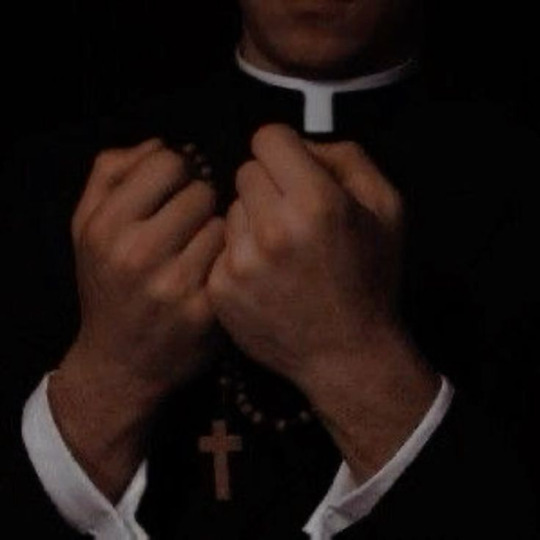
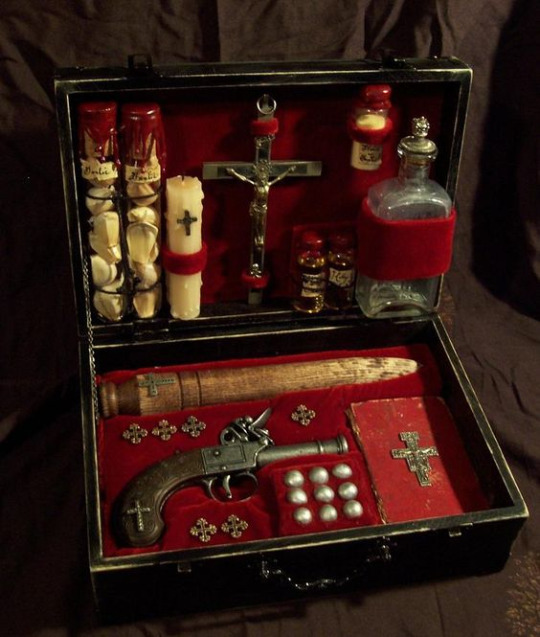
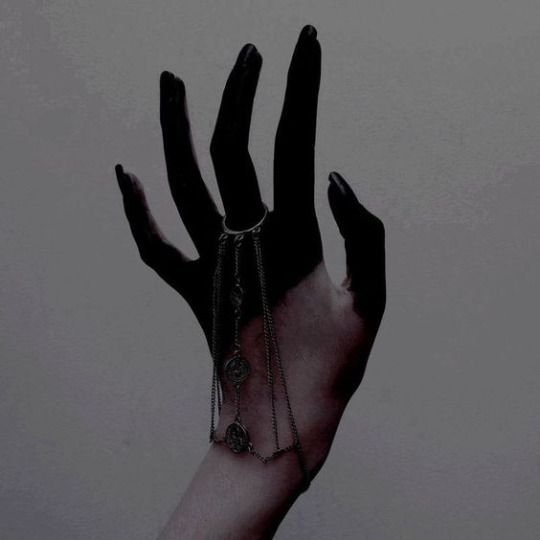
𝕹𝖆𝖒𝖊: Daisuke | Dennis | Dietrich*
*Given Japanese Name | "Saint Name" | Birth Name
𝕬𝖌𝖊: Unknown (Physically 17)
𝕭𝖑𝖔𝖔𝖉 𝕿𝖞𝖕𝖊: AB
𝕳𝖊𝖎𝖌𝖍𝖙: 180cm
𝖂𝖊𝖎𝖌𝖍𝖙: 61kg
𝕳𝖔𝖇𝖇𝖎𝖊𝖘: Bible Recitations, Puzzles.

As both a Vampire and a Vampire Hunter, Daisuke has been Komori Seiji's apprentice at the Church ever since he was gravely injured by him. He is the son of Sakamaki Richter and his estranged wife, who were thought to have been murdered by Odessa, and thus he is the half-brother of Sakamaki Ryuuto. Daisuke is, additionally, unofficially a priest at the Church.
Within the Church, only Seiji knows of Daisuke's Vampirism, with the former taking him under his wing as his apprentice after being hunted by him in Germany. Although Daisuke remains weakened, and ill, from the poison used to capture him, Seiji keeps him alive for the purpose of his pureblood heritage providing knowledge of other Vampires, and of Karlheinz. The poison used was alike the potent toxins Richter used on Ayato, following his initial refusal to abdicate; His poisoned and dying veins are similarly discoloured, kept at bay by medicine administered by Seiji. His hands, however, are the most noticeably poisoned part of him, which he conceals with gloves.
Daisuke is a methodical, and routine-loving, young man who keeps to himself more often than not. Despite being thankful for the mercy showed by Seiji, his gratitude has its bounds; He remains distrusting, with his death almost certainly assured when his usefulness runs dry. He, however, remains loyal to him, festering a deep desire for vengeance for his mother against Odessa, and all those involved with the destruction of his family.

✒︎ He briefly fled from Germany to Russia following Odessa's destruction of his family, before returning a few years later after being chased out by Vampire Hunters.
✒︎ He is fluent in Japanese, German, and Russian.
✒︎ He was born on the December 24.
✒︎ He shares a name with Saint Denis, the first bishop of Paris, who was martyred by decapitation, after which legend says he picked up his own severed head and walked for a distance while preaching a sermon.
#[. new oc dropped.#[. i have his looks in my head but#[. hoping to make sprites for him ><#[. he will be trialed here ig? not canonically the same universe as normal ryuuto; he is only part of my s/i universe atm#.biography#daisuke#diabolik lovers#diabolik lovers oc#dialovers#dialover oc
24 notes
·
View notes
Text
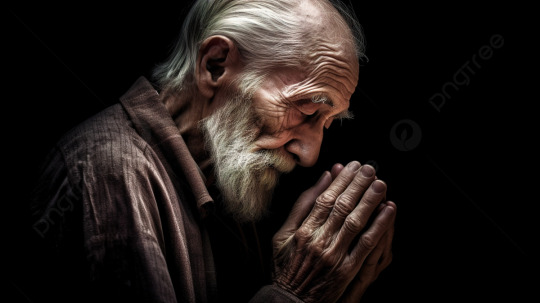
Thy Testimonies Are My heritage
Your decrees are my heritage forever;
they are the joy of my heart.
— Psalm 119:111 | New Revised Standard Version (NRSV)
New Revised Standard Version Bible, copyright © 1989 the Division of Christian Education of the National Council of the Churches of Christ in the United States of America. All rights reserved.
Cross References: Deuteronomy 33:4; Psalm 119:14; Psalm 119:162
#Lord#testimony#joy#heritage#heart#life#eternity#Psalm 119:111#Book of Psalms#Old Testament#NRSV#New Revised Standard Version Bible#National Council of the Churches of Christ in the United States of America
3 notes
·
View notes
Note
I have autism bear with me. Im not Jewish, but I wanted to ask a question, about Judaism and stuff, I tried to ask this question to a "non religious" Chaplin provided at a mental health place and when they came back after talking, they said in the hallway they 'were going to stop me from becoming a Jew' then they gave me directions to their church aggressively and it was kinda intimidating. I just told her (not verbatim) I read the first testament and felt deeply connected to the story of Sarai/Sarah (bc of infertility being relatable to me) and the descriptions of God I felt connected to but I didn't find Jesus in it at all like I was supposed to be. I was told it's 'racist' (thats the word my friend used) to explore religion outside of your culture and heritage by a friend, idek. But Judaism sounds like everything I have been wishing Christianity would change to be, sorry to be blunt. Am I allowed to explore this...? I'm way too naive to convert to a new religion but I want my children to be Jewish even if I can't be, because I want them to have a connection to God like that. Sorry for pouring my heart out in an anon ask. Your blog is cool! - L
So,
First of all, I appreciate that you have this love for Judaism, but unless you're Jewish, there's certain aspects of Judaism that you can't just "explore". You can visit a synagogue to see what Judaism is like, but you can't observe Shabbat or any Jewish holidays, etc.
You also say "I'm way too naive to convert to a new religion", which makes it sound like you think converts to Judaism are naive, which is something you need to unpack before you ever start thinking of approaching Judaism. People convert to Judaism because their soul's destiny is to be Jewish, because they have a genuine connection to Judaism. They are not naive. Jews-by-choice make the difficult decision to enter into an entirely new culture and community, subjecting themselves to new forms of discrimination, completely changing their lives. It takes years between deciding conversion is something a person wants to pursue to when they finally become formally Jewish.
Additionally, you can't raise your children Jewish without being Jewish yourself. Judaism isn't a diet or lifestyle you can just experiment with, and if you don't want to be Jewish yourself, then you have no right to try and push it on your hypothetical children. I think you have a lot of biases and misconceptions about Judaism that you need to reckon with. Judaism is a closed culture. You can appreciate Judaism, but you can't practice Judaism unles you are Jewish yourself.
Also, Judaism isn't "everything I have been wishing Christianity would change to be". It's its own religion that predates Christianity. It has its own virtues and flaws just like any other culture and religion. It's not perfect.
If you truly appreciate aspects of Jewish spirituality and values but don't want to be Jewish yourself, you can look into practicing the values outlined in the Noahide Laws and engaging with the Jewish community as an ally.
There's also nothing wrong with connecting with the Bible, whether or not you are religious. If Sarah is someone you connect with, then connect with her. You don't have to be Christian or Jewish to appreciate that.
161 notes
·
View notes